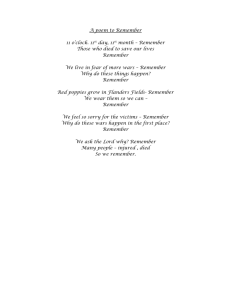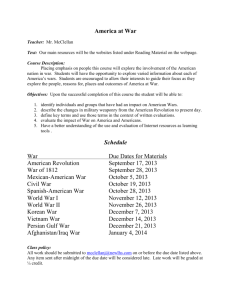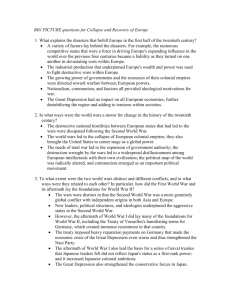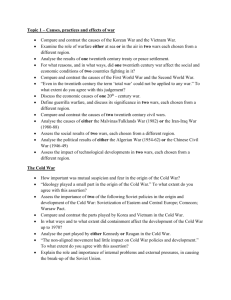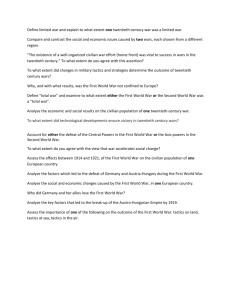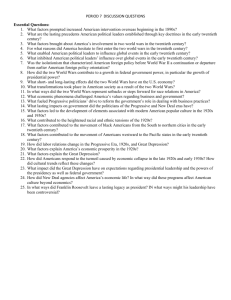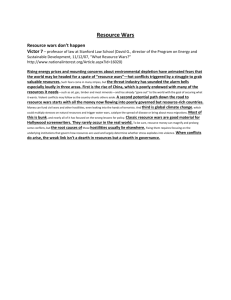Gender, War and Peace J. Ann Tickner Professor Emerita, School of
advertisement
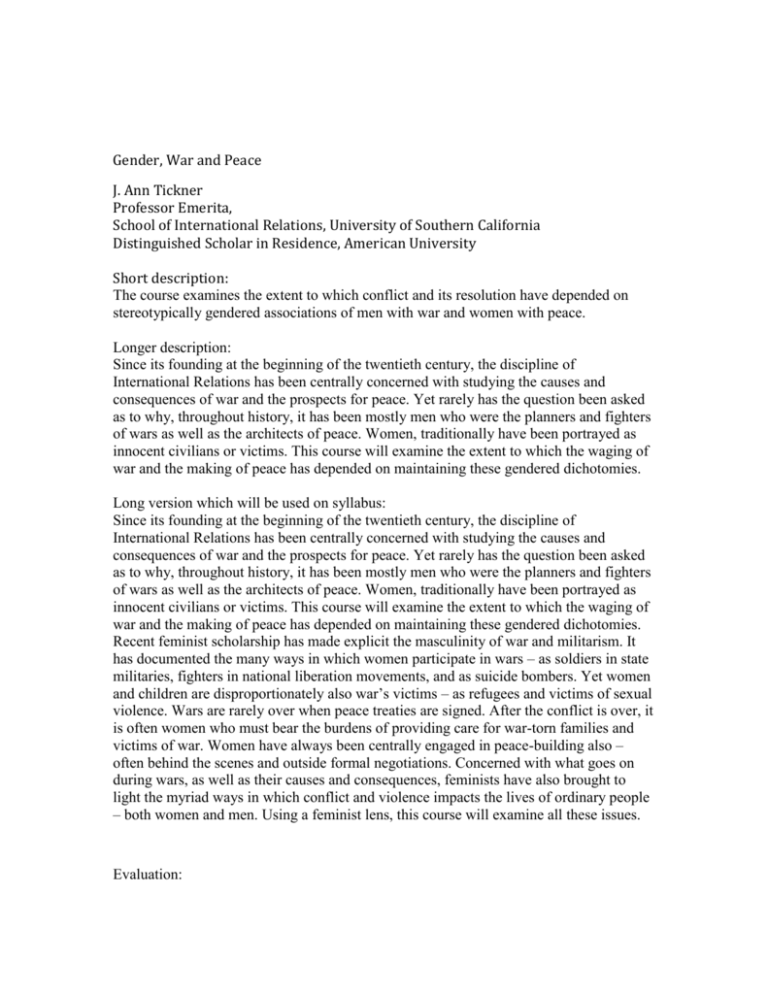
Gender, War and Peace J. Ann Tickner Professor Emerita, School of International Relations, University of Southern California Distinguished Scholar in Residence, American University Short description: The course examines the extent to which conflict and its resolution have depended on stereotypically gendered associations of men with war and women with peace. Longer description: Since its founding at the beginning of the twentieth century, the discipline of International Relations has been centrally concerned with studying the causes and consequences of war and the prospects for peace. Yet rarely has the question been asked as to why, throughout history, it has been mostly men who were the planners and fighters of wars as well as the architects of peace. Women, traditionally have been portrayed as innocent civilians or victims. This course will examine the extent to which the waging of war and the making of peace has depended on maintaining these gendered dichotomies. Long version which will be used on syllabus: Since its founding at the beginning of the twentieth century, the discipline of International Relations has been centrally concerned with studying the causes and consequences of war and the prospects for peace. Yet rarely has the question been asked as to why, throughout history, it has been mostly men who were the planners and fighters of wars as well as the architects of peace. Women, traditionally have been portrayed as innocent civilians or victims. This course will examine the extent to which the waging of war and the making of peace has depended on maintaining these gendered dichotomies. Recent feminist scholarship has made explicit the masculinity of war and militarism. It has documented the many ways in which women participate in wars – as soldiers in state militaries, fighters in national liberation movements, and as suicide bombers. Yet women and children are disproportionately also war’s victims – as refugees and victims of sexual violence. Wars are rarely over when peace treaties are signed. After the conflict is over, it is often women who must bear the burdens of providing care for war-torn families and victims of war. Women have always been centrally engaged in peace-building also – often behind the scenes and outside formal negotiations. Concerned with what goes on during wars, as well as their causes and consequences, feminists have also brought to light the myriad ways in which conflict and violence impacts the lives of ordinary people – both women and men. Using a feminist lens, this course will examine all these issues. Evaluation: Students will be expected to do the reading before each seminar and be prepared to make short oral presentations on the readings assigned for each class. There will be a final written paper of no more than ten pages. The paper will comprise 70% of the grade and the oral reports and participation 30%.
